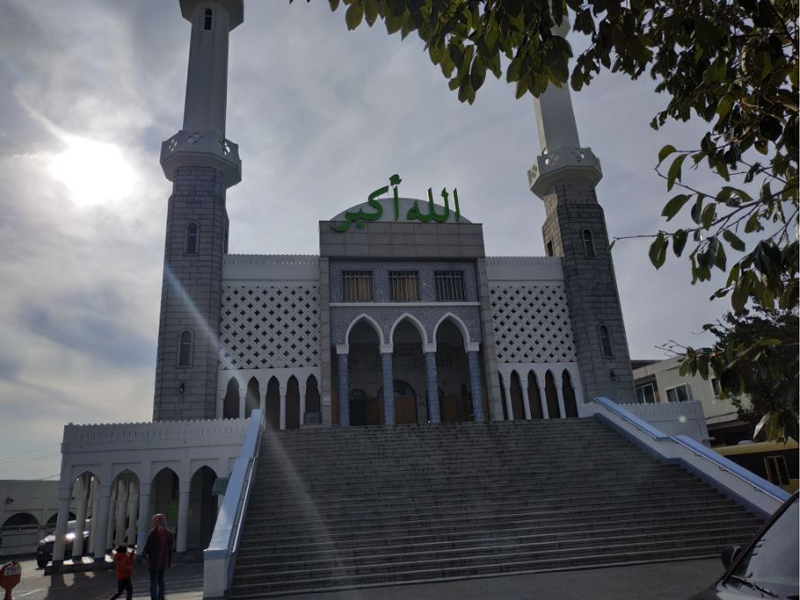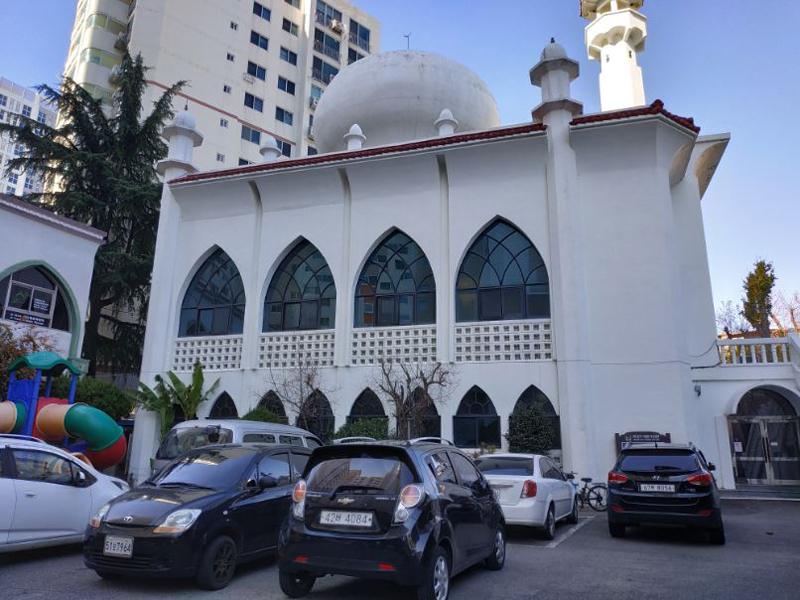- 한국어
- English
- 日本語
- 中文
- العربية
- Español
- Français
- Deutsch
- Pусский
- Tiếng Việt
- Indonesian
By Honorary Reporter Fitri Amalia from Indonesia
Photos= Fitri Amalia

Opened in 1976, the Seoul Central Mosque is the first and biggest mosque in Korea and houses the office of the Korea Muslim Federation. During Ramadan, the mosque holds the traditional rituals of iftar, Tarawih and Al I'tikaf.
Three years ago, I spent my early Ramadan in Korea's Chungcheongnam-do Province and the rest in Seoul. Far from my homeland of Indonesia, I was forced to adapt to a new environment. It was easy on a normal day but grew challenging during Ramadan.
Technology has helped me a lot. Living in a Muslim-majority country like Indonesia, I can hear adhan (call to prayer) in a loud voice to know when to pray. But not in Korea. Fortunately, apps tell me when prayer time is and show the direction of prayer. So I know when to stop eating or break my fast. Online markets that sell and deliver halal foods also saved me when I lived in the provinces. And Korea's high-tech transportation features subway trains that are always on time. It made me relaxed when I did Tarawih (night prayer) at the Seoul mosque, as I often caught the last train.
I attended iftar (breaking the fast) at the Indonesian Embassy in Seoul with Indonesian friends. In addition, every day during Ramadan sees many mosques with iftar.
Even after Ramadan, each mosque in Seoul did Eid Al-Fitr prayer at different hours but not too early, from 7 a.m. to 9 a.m., whereas it is always held from 6 a.m. to 7 a.m. in Indonesia. The aim is to allow people from distant cities, such as Ansan, Gyeonggi-do Province, to pray together.

Established in 1980, Al-Fatah Mosque in Busan is the second mosque in Korea and in charge of 20 mushola (small mosques) in Gyeongsangnam-do Province
When I lived in a dormitory in Korea, my dinner time was not the same as my Korean friends during Ramadan but they still encouraged me. They gave me fruits, snacks and milk, and even the cafeteria staff cooked me a full dinner. It was also touching that my Korean friends tried not to eat and drink in front of me during Ramadan. And after I broke my fast, they congratulated me for a job well done. This is the warm affection I felt from Koreans.
Because of the pandemic, however, Ramadan is different this year. In Indonesia, Korea and other parts of the world, there will be no iftar gathering, no congregational or Tarawih prayer on Friday and no communal atmosphere. Even the Korea Muslim Federation from Feb. 28 closed all mosques until further notice.

Celebrating the eve of Eid Al-Fitr with friends from Indonesia, Malaysia, Egypt, Morocco and Korea in Seoul's Dongdaemun-gu District
Following guidelines from Malaysia, Korea started Ramadan on April 24 and Muslims in Korea will fast for 15-16 hours. I had planned to spend a few days in Korea during Ramadan, but due to the pandemic and visa issues, I opted not to. The holiday will be different this year, but hopefully it will be the best Ramadan.
chaey0726@korea.kr
*This article is written by a Korea.net Honorary Reporter. Our group of Honorary Reporters are from all around the world, and they share with Korea.net their love and passion for all things Korean.